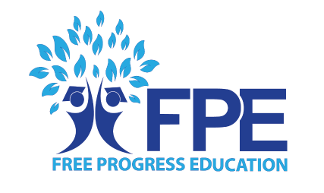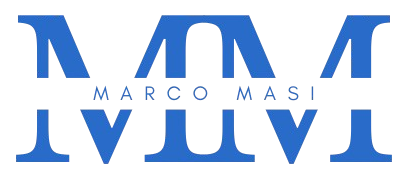
The Free Progress University curriculum approach
According to the ideal of an FPU each individual should be allowed to develop along a path of free progress and to follow one’s own curiosity, preferences, interests without pre-determined learning paths imposed from above by a hierarchy or an abstract system.
This automatically implies also that a faculty of a FPU should not force a curriculum or the syllabus of each course upon students who are interested in building their own learning pathway. It is frequently a cause of deep frustration for students to follow a dictated program they aren’t really interested in or, worse, that they know already for sure that they will never apply and need, but are nevertheless forced to swallow in order to get a certificate or a grade.
Therefore in a FPU mentors cannot force anyone to follow a curriculum or a fixed content of a course. Every student is free to choose one’s own content of interest, pace and path, skip those parts considered less relevant for their learning progress, without having to fear bad grades, reprimands or any consequences. Moreover, no mandatory textbooks (or video lectures, script or other study materials) are required to follow and complete the courses. Since there is no examination which tests students on a specific content there is no impediment to choose another source of information for the self-directed learning process.
However, having said that, this university nevertheless suggests carefully chosen textbooks and takes their content as a guiding line along which each course develops. So, curricula and syllabi are not imposed but in fact proposed to the group of participants, and the mentors will follow, as far as possible, its table of contents.
This might look like a contradiction, since on one side the FPE principles are based on the assumption that everyone should be free to choose one’s own path, on the other side you will see on the curriculum webpage a collection of text books which indicate the structure and contents of each course. However, let us list several reasons why this organisational approach is the best compromise between maximum freedom and a serious and professional effort which requires dedication, determination, self-control and responsibility, not without sacrifice and fatigue.
First of all there are subjects like physics (especially theoretical physics) which need a huge amount of basics without which nobody, even not the smartest genius, could initiate any serious and decent research or discovery. Those amateur physicists, who are convinced that they have made some extraordinary discovery but find only ‘close minded professionals’ and weren’t able to publish their “groundbreaking theory” in a peer reviewed journal, believe that there is a worldwide conspiracy against their truth. Experience shows that they simply don’t understand how they lack any basic knowledge about the subject they are desperately trying to promote. If you don’t want to become a crank that nobody will take seriously, you must absolutely first learn the basics and go through several years (here five) of a very demanding learning process that will furnish you the necessary foundations. There is no other alternative or shortcut. Give up any hope that things could work out differently. You must learn the absolute necessary minimum of the required foundations.
What these foundations are is of course, to some degree, a matter of personal preferences.
But, when it comes to a core of common knowledge, there is little doubt what these foundations must be and that you will badly need over and over again in almost every field or sub-field of physics. For instance, if you don’t know what the derivative or an integral of a function or a differential equation is, then you will never be able to understand nothing of the very mathematical basics you need to do physics. And this is only the beginning. You will have to apply the maths to learn the very basic stuff of physics (classical, relativistic or quantum). Therefore, there is a good reason why a common core theoretical physics curriculum for everyone is suggested and highly recommended.
Moreover, there is also another important reason which makes a prescribed minimum common learning path a reasonable thing to go through. As a new and still inexperienced student you won’t be able to really know in advance what study material really matters to you and which would be a waste of time. For instance, if you desire to become an expert in quantum mechanics you don’t know already what subjects of mathematical physics are really relevant for the understanding of it. Only an experienced physicist who has gone through the process will be able to tell you what really the basic ingredients are and which textbooks are those that best convey it, and what other material can eventually be skipped or learned later on. In fact it can happen that someone spends a lot of time in learning something which one realizes only much later was not so essential or skipped a chapter that later will turn out to be a foundation for some topic and consequently finds him/herself unable to grasp because of a lack of basics. Therefore, the advice to follow an accurately selected table of contents makes sense.
There are also social and organizational reasons attached to that. If your academic path is not supposed to be that of a lonely and secluded scientist, but that of a student attending classes and organizing cultural initiatives inside a research community with others by a social interaction, eventually leading to group and project oriented work, this implies also a minimum of common stuff to work on together with others. Working and studying together is the most effective way for learning something. The knowledge you have can be transmitted to others, the knowledge you lack can be found in others. This interactive social learning is certainly facilitated if you will find others with whom to study and learn on a common curriculum instead of everyone being busy on something of his/her own. It is like learning a language, you can’t expect to work with others if you don’t share a minimum of a common language. This social aspect of a FPU is important since only through an exchange of ideas knowledge it can develop and progress. In a self-educational community, like a FPU, learning entails also an exchange of knowledge and experiences with others and, why not, learning to know new people in a social setting.
And, last but not least, please consider that there should not only be free-learners but also ‘free-teachers’ who are allowed to propose courses and curricula. In a FPU the individual potential of all the involved actors has to be considered and respected. An educational environment that would impose the dictatorship of scholars would sooner or later crumble under the pressure of its inequality.
Once these pedagogical aspects have become clear to you, you can proceed towards a detailed explanation of what the curriculum of the FPU theoretical physicist department is.
